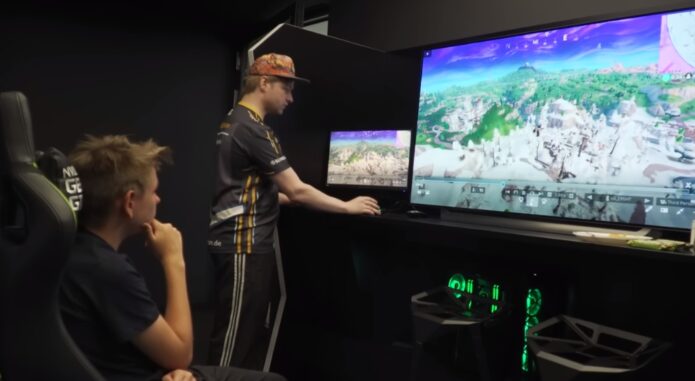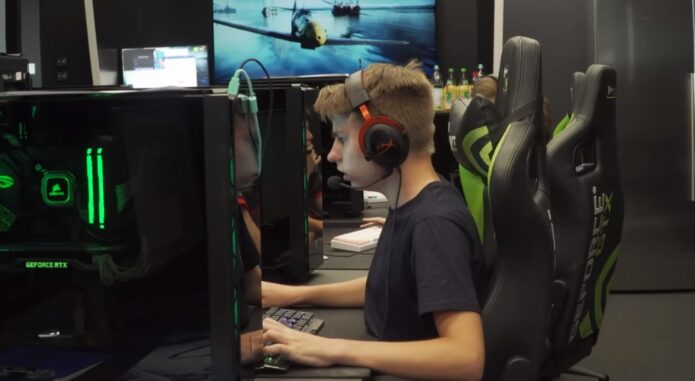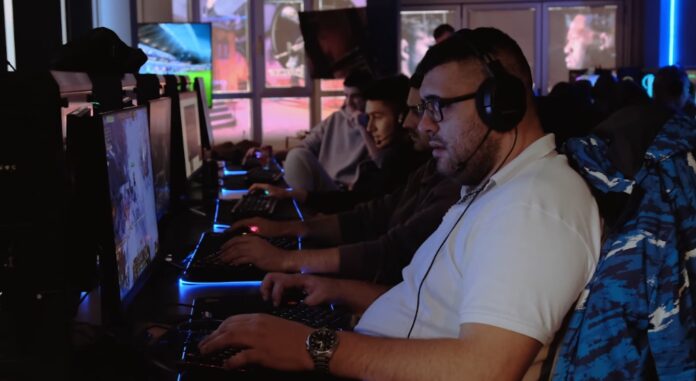The esports industry is booming, attracting a diverse audience with its competitive edge and interactive experiences. According to Statista, the revenue from the global esports market has risen from $996m to $1.38bn between 2020 and 2022.
It also anticipates revenue hitting $1.86bn by 2025, which would represent a rise of more than 34% in three years. ResearchAndMarkets’ market intelligence report on the global esports sector suggests it’ll grow at a compound annual growth rate (CAGR) of 16.7% between now and the turn of the next decade.
Much of this rapid growth can be attributed to technological innovations that have transformed gameplay and broadened its reach. In this article, we’ll explore the intersection of technology and esports, providing insights into the future of this exciting domain.
Poker in the Esports Arena
The esports and poker worlds are converging in an exciting partnership between the online platform PokerStars and Furia, a leading esports organization. This collaboration, now in its third year, represents a blend of the strategic, skill-based world of poker and the competitive, fast-paced arena of esports.
PokerStars, renowned in the online poker scene, and Furia, celebrated in the esports domain, are joining forces to explore and innovate at this intersection. The partnership is not just a business alliance but a fusion of two diverse gaming cultures, aiming to offer fans an enriched and diversified gaming experience.
As they step into another year of collaboration, the focus is on launching exclusive products that showcase both worlds, marking a significant milestone in the evolving narrative of gaming and esports. This partnership underscores the immense potential rooted in combining poker’s strategic gameplay with the dynamic environment of esports.
Advancements in Gaming Technology

Esports is a field where technology’s impact is significant. It’s not just about better graphics or faster processors; it’s about how these advancements elevate the gaming experience.
Enhanced graphics and animation have turned virtual environments and characters into almost lifelike experiences, drawing players and viewers into more immersive gameplay.
Gaming hardware has also seen significant upgrades. The modern gaming consoles and PCs, equipped with powerful components, easily handle resource-intensive games, ensuring smooth and visually rich gaming experiences. These improvements are crucial in esports, opening doors to more complex and visually appealing games.
Virtual Reality (VR) and Augmented Reality (AR) are notable advancements. VR offers players a fully immersive, three-dimensional gaming experience, while AR integrates digital elements into the real world. Both are changing the dynamics of gaming, promising more interactive and engaging experiences.
VR is delivering immersive esports action, allowing fans to get up close and personal with the world’s most talented gamers. Virtex partnered with Skybox to deliver a ‘Virtex Stadium’ portal, creating a virtual esports stadium for Counter-Strike: Global Offensive (CS: GO) events.
The Rise of Mobile Esports

The widespread use of smartphones has also impacted esports significantly. Mobile gaming has broken down entry barriers, allowing a broader audience to participate without the need for expensive equipment; even some of the best esports players in India compete with mobile devices. It’s a shift that has turned esports into a global phenomenon.
Popular mobile esports titles like PUBG Mobile and Clash Royale have attracted millions of players and fostered competitive gaming communities. The appeal of these games lies in their gameplay and the social ecosystems surrounding them.
PUBG Mobile has seen some huge tournaments hosted throughout 2024, including its four ‘majors’ – Pro League Series, PUBG Global Series, PUBG Nations Cup, followed by the PUBG Global Championship.
The latter is the pinnacle of the PUBG Mobile season, bringing together the top 32 PUBG Mobile teams worldwide, qualifying through regional events such as the Global Series. The total prize pool for this year’s Global Championship will hit $3m.
It’s a similar story with Clash Royale too. The 2024 Clash Royale season culminates in the World Finals, organized by Supercell. The 16-player event will carry a $900,000 prize pool, with the eventual winner of November’s tournament carrying home a first prize worth $250,000.
Technology continues to enhance mobile gaming. With smartphones becoming more powerful, the quality and responsiveness of mobile games are reaching new heights. The gap between PC/console gaming and mobile esports is closing, thanks to technological advancements that promise richer and more engaging mobile gaming experiences.
As technology continues to evolve, it’s paving the way for a future where mobile esports offers an experience as rich and competitive as traditional gaming platforms.
Future Trends in Esports Technology

The world of esports is on the brink of another evolution, thanks to emerging technologies that promise to redefine the gaming experience. Artificial Intelligence (AI) and Machine Learning are at the forefront of this transformation. These technologies are not just enhancing the gaming landscape but are reshaping it.
Game developers are leveraging AI to create more responsive and dynamic in-game environments, offering players a level of interaction that was previously unimaginable.
Moreover, AI is proving instrumental in analyzing player performance, offering insights that can refine strategies and enhance skills. AI means a more personalized engagement for the audience, with content tailored to individual preferences, improving the viewing experience.
On the connectivity front, the introduction of 5G is akin to opening floodgates. With its promise of unprecedented speeds and reduced latency, 5G is set to make esports more accessible and immersive.
Imagine global tournaments where players from every corner of the world compete in real-time, offering a level of engagement and competition that transcends geographical boundaries.
5G is a welcome tech innovation from the wider world. In the UK, thousands of Britons believe 5G has the potential to make a more positive impact than AI.
It’s hoped that 5G will help to lower the energy demands of a data-driven society. 5G mobile connectivity is set to have a greatly reduced carbon impact compared with the eras when 3G and 4G were released.
Initiatives are underway to integrate energy-efficient hardware and renewable energy sources, ensuring that the esports industry grows and does so sustainably. Each stride in technology is accompanied by a conscious effort to minimize the ecological footprint, ensuring that the future of esports is not just exciting but responsible.

